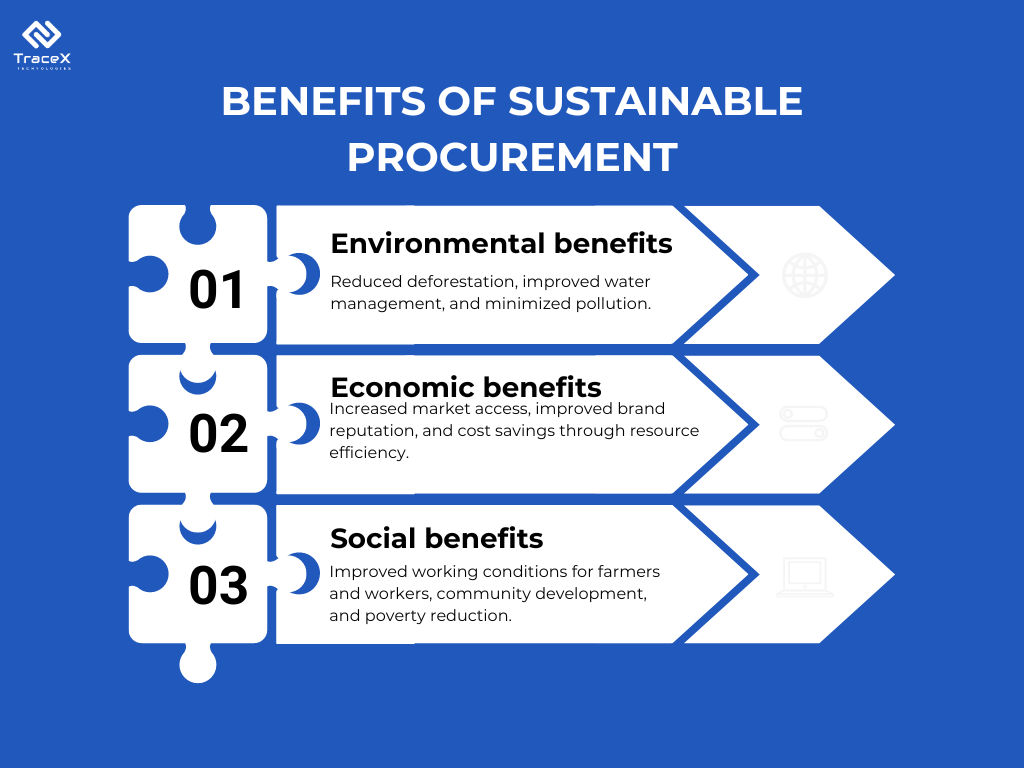Contact: +91 99725 24322 |
Menu
Menu
Quick summary: Unlocking Africa's Potential: Explore the challenges and opportunities of sustainable procurement in Africa. Discover strategies for overcoming obstacles and building a greener, more prosperous future.

Africa’s vast potential is undeniable, but its growth hinges on balancing economic development with environmental and social responsibility. The practice of acquiring goods and services that minimize negative environmental and social impacts, is gaining traction across the globe. Sustainable Procurement Challenges in Africa hinders the implementation of these practices
Despite these hurdles, there’s a growing movement towards greener procurement practices in Africa.
In recent years, there’s been a dramatic shift in how businesses approach their sourcing practices. Sustainable procurement, the consideration of environmental, social, and economic factors throughout the supply chain, has become a global priority. This move is driven by several key forces:
1. Environmental Concerns: Climate change, deforestation, and resource depletion have pushed environmental responsibility to the forefront of corporate agendas. Consumers are increasingly holding businesses accountable for their environmental footprint, demanding products sourced and produced sustainably.
2. Consumer Demand for Ethical Products: Today’s consumers are more informed and vocal about the ethical sourcing of products. They seek brands that prioritize fair labor practices, responsible waste management, and respect for human rights throughout their supply chains.
3. Regulatory Landscape: Governments worldwide are implementing stricter regulations to promote responsible sourcing. Initiatives like the EU Deforestation Regulation (EUDR) require businesses to ensure their products are not linked to deforestation or other harmful practices.
By prioritizing sustainable procurement, Africa can create a win-win situation, fostering economic growth and environmental responsibility for a brighter future.
Sustainable procurement offers a promising path for Africa’s development, but significant obstacles hinder its widespread adoption
Building strong partnerships between businesses, governments, and NGOs is crucial. Businesses can share best practices, invest in training programs, and provide technical assistance to suppliers. Governments can develop clear legal frameworks and regulations promoting sustainable procurement, along with providing financial incentives for businesses and farmers adopting sustainable practices. NGOs can offer expertise in capacity building, community engagement, and certification processes.
Capacity building for smallholder farmers and local suppliers is essential. Initiatives can include training programs on sustainable agricultural practices, such as soil conservation, water management, and organic farming techniques, workshops and seminars to educate suppliers on responsible sourcing practices and compliance requirements. Providing affordable access to digital tools for data collection, record-keeping, and communication within the supply chain is important.
Leveraging technology is critical for improving supply chain traceability and data management. Blockchain technology can provide secure and transparent tracking of goods from origin to end-user, ensuring responsible sourcing practices. Satellite monitoring can be used to monitor deforestation and verify land-use practices within a supplier’s network. Mobile applications can be used by farmers to record data on their production practices and facilitate communication with buyers.
Developing clear standards and guidelines for responsible sourcing is essential. These standards should be tailored to the African context, considering local challenges and opportunities. Collaboration between stakeholders is key to ensure consistent and achievable standards across the continent.
Prioritizing local sourcing and supporting regional value chains not only reduces transportation emissions but also strengthens local economies. By partnering with local farmers and processors, businesses can build trust, improve traceability, and ensure a more sustainable supply chain.
Engaging with financial institutions to develop green financing solutions is crucial. Loan products with favourable terms specifically designed for businesses implementing sustainable procurement practices. Investment funds dedicated to supporting sustainable agriculture and green infrastructure development. Risk-sharing mechanisms to encourage banks and investors to participate in the sustainable procurement space.
By implementing these strategies, businesses in Africa can overcome the challenges and unlock the numerous benefits of sustainable procurement. A collaborative approach, coupled with technological innovation and financial support, will pave the way for a more sustainable and prosperous future for Africa’s economies and its environment. This shift will not only ensure responsible sourcing but also empower local communities, promote economic growth, and protect the continent’s precious natural resources.

Sustainable procurement demands transparency throughout the supply chain. TraceX empowers businesses to achieve this by offering several key functionalities:
TraceX fosters a win-win situation, creating a more efficient and ethical procurement system that benefits both farmers and businesses, ultimately paving the way for a more sustainable future for the agricultural sector.
Explore our Farm Management Platform
A tobacco giant achieved success with TraceX’s sustainable procurement solutions by gaining greater transparency throughout their supply chain. The platform helped to track tobacco from farm to factory, ensuring responsible sourcing practices aligned with environmental and labor standards. This transparency helped to build trust with consumers who value ethical products. Additionally, the platform offered efficient farmer communication, data management on growing practices, and even resources for sustainable techniques – potentially improving yields and overall efficiency. With TraceX’s data-driven insights, the tobacco giant could optimize procurement processes and address regulatory challenges, solidifying their position in a complex industry.
Sustainable procurement presents a unique set of challenges in Africa, but these hurdles are not insurmountable. By prioritizing collaboration, capacity building, technological innovation, and financial solutions, businesses can navigate these obstacles and unlock the numerous benefits of responsible sourcing. A shift towards sustainable procurement practices will not only ensure ethical and environmentally friendly production but also empower local communities and contribute to Africa’s long-term economic prosperity.
